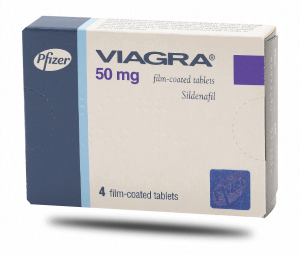Is Erectile Dysfunction Curable?
When a man is diagnosed with erectile dysfunction, probably one of the first questions that cross his mind will be if his erectile dysfunction will ever be cured. Naturally, a man will be concerned and worried because erectile dysfunction can have an impact on many aspects of his life – especially in relationships and even the ability to conceive.
In the UK, 1 in 5 men suffer from erection problems and this includes both older and younger age groups. There may be more men with erectile dysfunction suffering from the problem than those clinically diagnosed because some have a sense of embarrassment or even shame to discuss their health problem with a healthcare professional.
It is a myth to say the erectile dysfunction is a condition limited to older men and is simply part of the ageing process. Instead, we are seeing more and younger men being diagnosed with the condition and there are many reasons that can account for this such as the stressful lifestyle most people lead these days.
What is Erectile Dysfunction?
It is also known as impotence and is a recognised health problem that potentially can be treated successfully. Erectile dysfunction is when a man has difficulty in getting or maintaining an erection that is hard enough for satisfactory sexual performance. It can be expected that such a problem can have a negative impact on the person as well as their partner as their sexual needs may not be sufficiently met. Often, there has been a breakdown of relationships due to the strain placed on them and this can lead the man to develop depression in worse cases.
Click HERE to View Viagra Prices > >
What causes Erectile Dysfunction?
Essentially, erectile dysfunction is due to a reduced blood supply going to the penile tissue which would otherwise cause erections (penile tissue to harden) when sexually aroused. Although erectile dysfunction itself is not something to worry about, it can potentially be a sign for an underlying health condition such as diabetes or heart problems, so it is important to ensure that medical advice is obtained if erectile dysfunction is a continuous problem.
Possible causes include:
- Heart problems such as high blood pressure and atherosclerosis (hardening of the arteries)
- Diabetes (between 35% and 50% of men with diabetes get ED)
- Side effects of some medications such as some anti-depressants and beta blockers
- Nerve disorders, like Parkinson’s disease and multiple sclerosis
- Hormone problems
- Mood problems such as stress, anxiety, and depression
- Smoking and drinking alcohol
The difference between ‘treat’ and ‘cure’
The question of whether erectile dysfunction is curable is probably quite a bold statement to make. There is a difference between ‘treat’ and ‘cure’. The term ‘cure’ means that the condition will go away and never come back, almost like the person is in remission. The term ‘treat’ means that the symptoms are lessened or removed but could still have the potential to come back. Successful treatment of erectile dysfunction is really dependent upon the person and how they can manage the causes of their erectile dysfunction. Because erectile dysfunction is usually due to a cause, by treating the underlying cause then erectile dysfunction can be successfully treated. Curing erectile dysfunction can be more difficult unless the underlying cause it completely removed and this is not very common.
Treatment of erectile dysfunction
There are treatments available that are licensed for erectile dysfunction and are successfully proven to work. They include examples such as Viagra, Cialis and Levitra. They all work in the same way to increase the blood supply to the penis and help to gain an erection once there is sexual stimulation. The main differences between them are the duration of action and each person is different in terms of which tablet is better for them. These treatments have brought positive results in the lives of many couples because of their effectiveness in working. Clinical trials and prescribing have helped to solve the problems of erectile dysfunction but not necessarily cured them.
Making treatment more effective
Treatment can be more effective if it is taken correctly and there are a number of ways you can do that:
- Take the minimum, effective dose for you. If needed, you can increase the strength to the maximum dosage after consulting with your doctor
- Take on an empty stomach, avoiding high-fat meals in particular
- Take 30 minutes to 1 hour before sexual activity for most tablets
- Reduce alcohol intake
- Ensure good sexual stimulation to maximise the benefit of treatment
- Always mention to the pharmacist when buying medicines from the pharmacy just in case they may interact (such as St John’s wort)
Some of the lifestyle changes needed can make a significant impact and would certainly be an option to encourage and consider seriously. In an Australian study carried out on 810 men with erectile dysfunction, almost a third of the men were able to overcome their problem of erectile dysfunction simply by modifying their lifestyle and adjusting it to become a healthier one. This shows the impact that some of the lifestyle choices we make can have on our lives.
There are so many services out there that can help with finding the right advice and recommendations. Any health care provider in the community such as the Pharmacist can provide a confidential discussion about your medical problem and advise you on the best course of action. At the same time, it must be kept in mind that there is a chance the erectile dysfunction can come back if there is a more serious, underlying cause; and this should be addressed as soon as possible. If you have generally good health and are suffering from erectile dysfunction, it is always worth a visit to the doctor to check that there is no underlying condition that may be causing it. In this case, erectile dysfunction will certainly not stop as easily on its own and most likely treatment would be given to help with getting and maintaining an erection.
What if I am depressed?
Where there is depression, which often co-exists with erectile dysfunction, it is important that the depression is managed effectively too. If the depression is not being treated appropriately, then there is a low expectation that the erectile dysfunction will go away. Studies have shown that men with erectile dysfunction may be twice as likely to develop clinical depression as compared to those without erectile dysfunction and so it is important that depression is dealt with effectively.
So, is erectile dysfunction curable?
Overall, we can quite safely say that there are effective treatments out there to help with erectile dysfunction. These treatments should be considered if there are continual erection problems that do not go away and you should speak to your doctor about it. However, curing erectile dysfunction is more difficult because there is usually an underlying cause which needs to be looked at and managed too. Sometimes, simple lifestyle changes can make a difference – such as losing weight or stop smoking or even reducing alcohol intake. Removing yourself from stressful situations and trying to reduce stress levels can certainly help to improve the ability to get and maintain erections. But other times, some of the more serious underlying conditions such as diabetes and heart disease can prove to be more difficult to eradicate and therefore we would expect erectile dysfunction to continue, or at least not disappear. So a holistic approach to managing erectile function is really important to help reduce the chance of experiencing erectile dysfunction, but in most cases, we would probably not expect erectile dysfunction to completely go away and never return – as long as the underlying problem remains.
Click HERE to View Viagra Prices > >
References
- https://www.webmd.com › Depression
- www.BNF.org
- www.NHS.org.uk
- www.everydayhealth.com/drugs/viagra
Mens Pharmacy is not liable for the currency or accuracy of the information contained in this blog post. For specific information about your personal medical condition, please contact our doctors or pharmacists for advice on [email protected].

